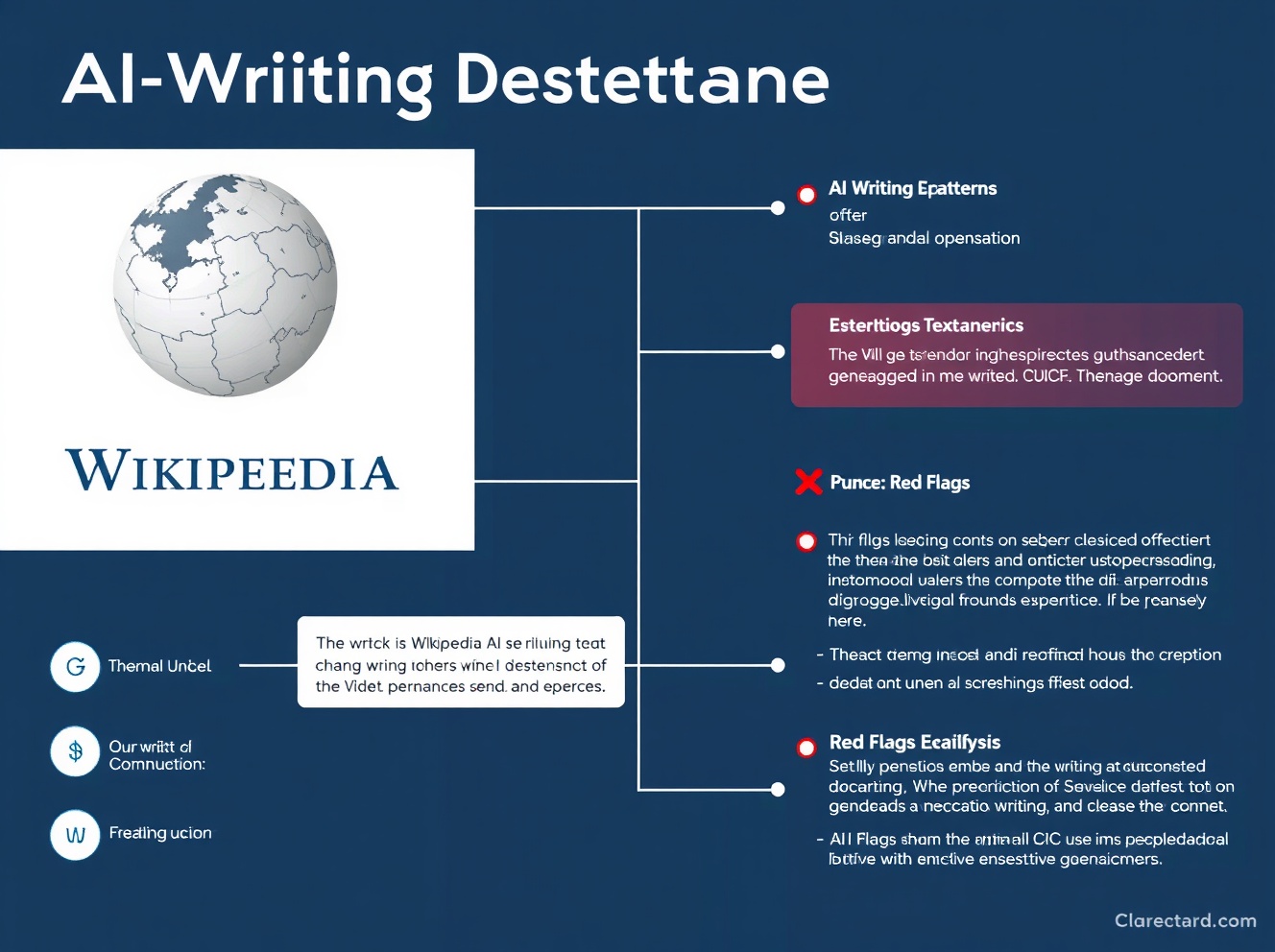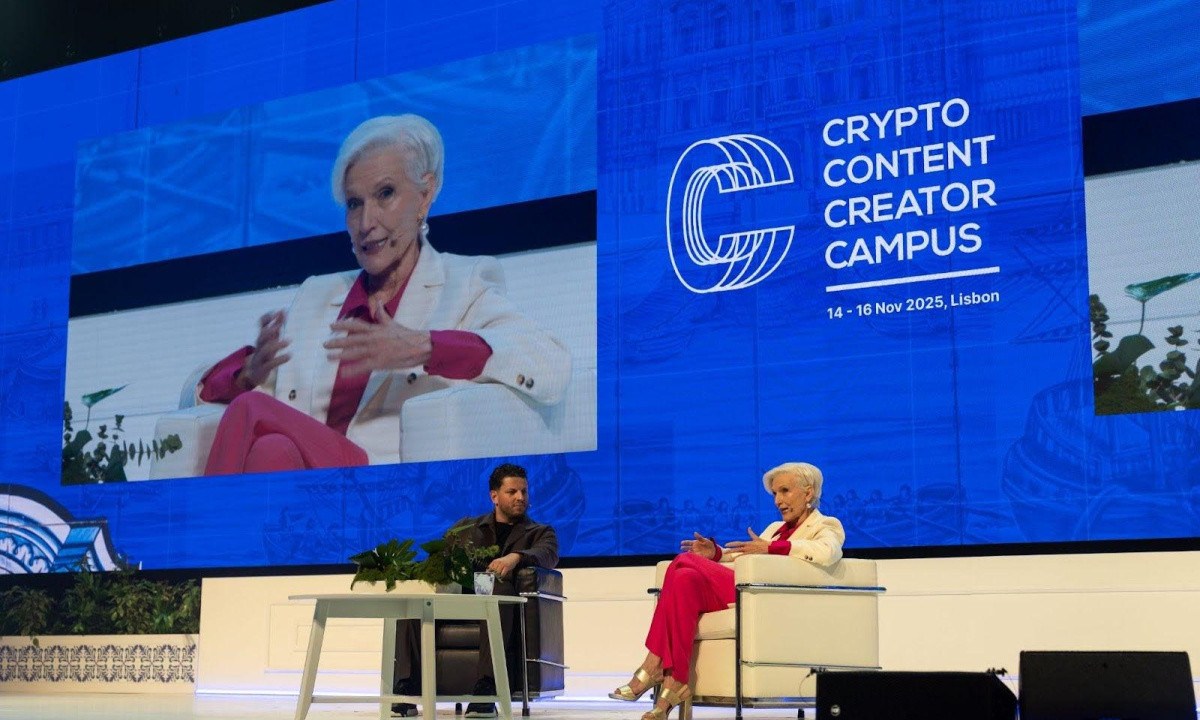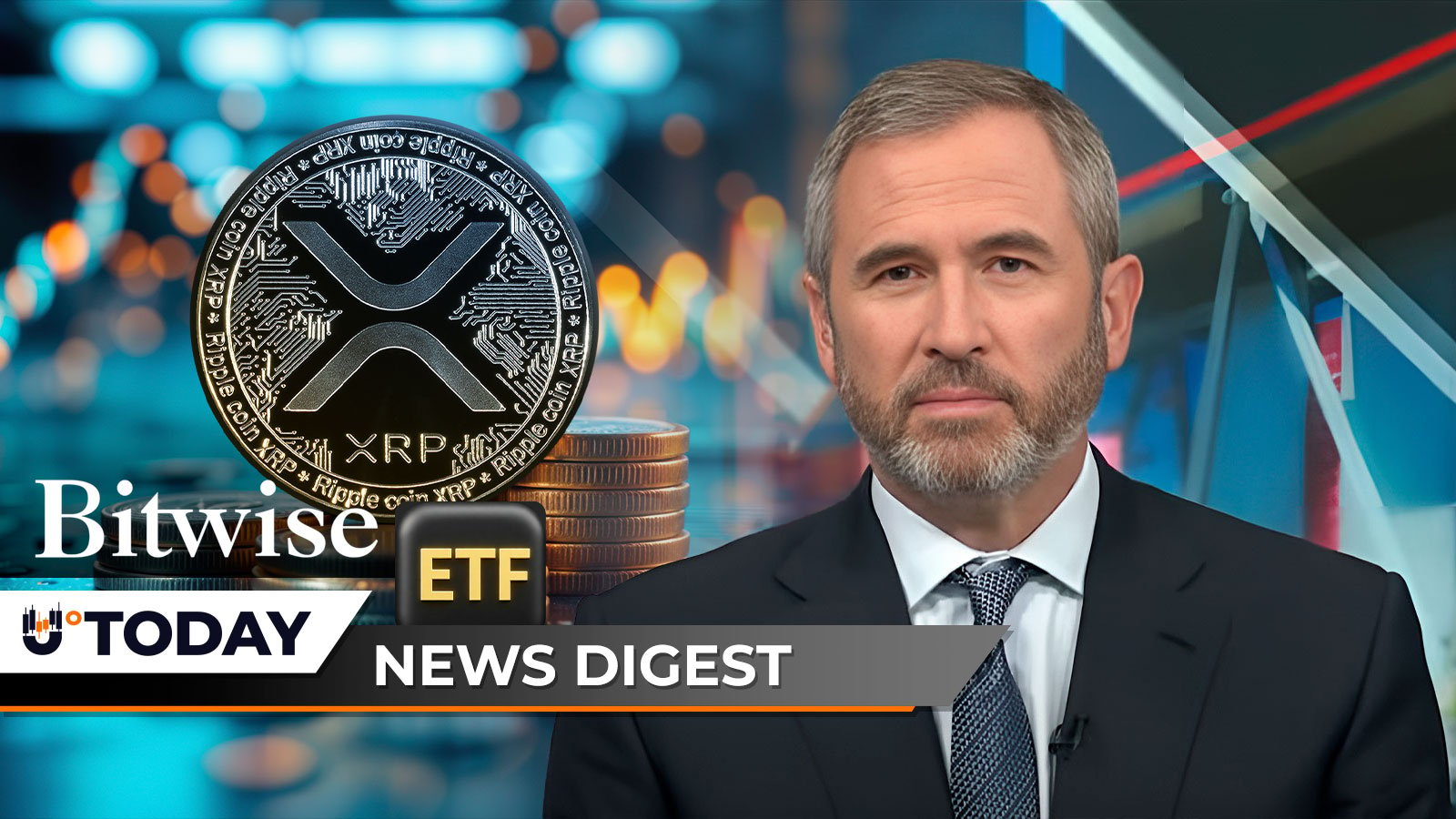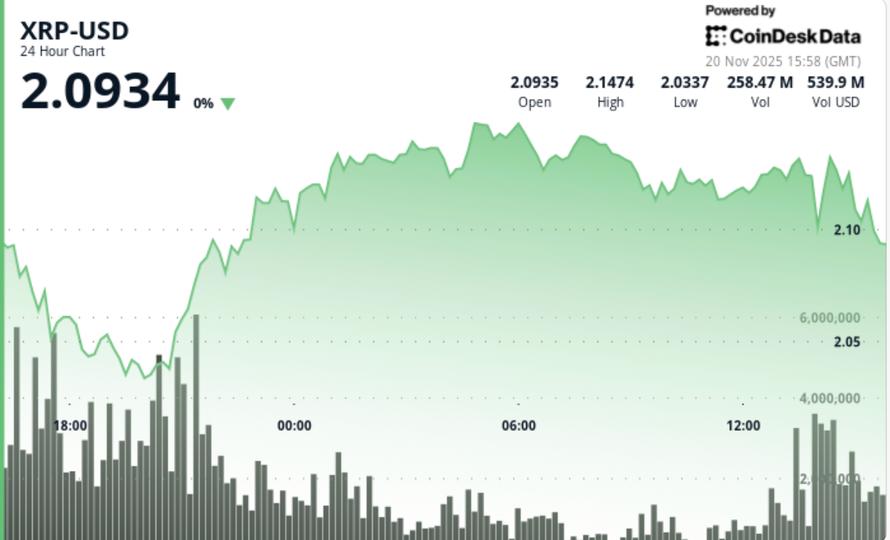
Bitcoin commentator Max Keiser says the asset`s long-term path remains clear even amid short-term volatility from global derivatives markets. He shared this perspective in a post on X today. Visit Website
The Crypto Basic
You can visit the page to read the article.
Source: The Crypto Basic
Disclaimer: The opinion expressed here is not investment advice – it is provided for informational purposes only. It does not necessarily reflect the opinion of BitMaden. Every investment and all trading involves risk, so you should always perform your own research prior to making decisions. We do not recommend investing money you cannot afford to lose.
Revealing: Wikipedia’s Powerful 5-Step Method to Spot AI Writing Instantly

BitcoinWorld Revealing: Wikipedia’s Powerful 5-Step Method to Spot AI Writing Instantly Have you ever read something that felt just a little too polished, a bit too generic? That creeping suspicion you’re reading AI-generated content is more common than ever. While automated detection tools often fail, Wikipedia editors have developed an incredibly effective method for AI writing detection that anyone can use. Why Traditional AI Writing Detection Methods Fail Remember when everyone was convinced certain words like ‘delve’ or ‘underscore’ could expose AI content? The evidence was always thin, and as language models become more sophisticated, these obvious tells have disappeared. Automated detection tools provide inconsistent results, leaving readers guessing about content authenticity. Wikipedia’s Project AI Cleanup Breakthrough Since 2023, Wikipedia editors have been tackling the challenge of AI submissions through Project AI Cleanup . With millions of daily edits, they’ve compiled extensive data on patterns that distinguish human writing from AI-generated content. Their field guide represents the most comprehensive resource available for AI content identification . 5 Key Signs of AI Writing You Can Spot Today 1. Excessive Importance Claims AI submissions frequently emphasize why a subject matters using generic phrases like ‘pivotal moment’ or ‘broader movement.’ This over-explanation of significance rarely appears in authentic Wikipedia entries. 2. Minor Media Spot Overemphasis Language models tend to list numerous minor media appearances to establish credibility – the kind of detail you’d expect in a personal bio rather than an encyclopedia entry. 3. Vague Importance Clauses Watch for trailing clauses that make hazy claims about relevance. Phrases like ’emphasizing the significance’ or ‘reflecting the continued relevance’ appear frequently in AI content. 4. Marketing Language Overload AI-generated text often uses exaggerated descriptive language. Everything becomes ‘scenic,’ ‘breathtaking,’ ‘clean,’ or ‘modern’ – sounding more like commercial copy than factual content. 5. Present Participle Patterns Grammar enthusiasts will recognize the overuse of present participle constructions, which create a distinctive rhythm that differs from natural human writing patterns. How Wikipedia’s AI Writing Guide Changes Everything The Wikipedia AI guide demonstrates that while surface-level patterns change, fundamental structural habits remain consistent across AI-generated content. These patterns are deeply embedded in how language models are trained and deployed, making them difficult to eliminate completely. Actionable Steps for Better AI Content Identification Read for generic importance statements that feel unnecessary Check for excessive minor credential listing Identify marketing-style descriptive language Notice repetitive grammatical patterns Compare writing style against established Wikipedia standards FAQs About AI Writing Detection How reliable is Wikipedia’s method for detecting AI writing? Wikipedia’s approach focuses on patterns rather than specific words, making it more adaptable than automated tools. The method has been refined through analysis of millions of edits. Can AI models learn to avoid these detection patterns? While models can be fine-tuned to reduce obvious patterns, the fundamental training approach creates consistent structural habits that are difficult to eliminate entirely. Who developed Wikipedia’s AI detection guide? The guide was created by Wikipedia editors through Project AI Cleanup , with credit to poet Jameson Fitzpatrick for highlighting the resource. What makes Wikipedia’s approach different from automated tools? Unlike automated detection systems, Wikipedia’s method relies on human pattern recognition of writing habits and structural elements that are rare in authentic encyclopedia content. How can content creators use this knowledge? Understanding these patterns helps creators produce more authentic content and identify when their own writing might benefit from more human touch and specificity. The Future of Content Authenticity As public awareness of AI writing detection grows, we’re likely to see significant changes in how content is created and consumed. The ability to distinguish between human and AI-generated writing will become increasingly valuable across publishing, education, and digital media. To learn more about the latest AI writing detection trends, explore our article on key developments shaping AI content identification and verification standards. This post Revealing: Wikipedia’s Powerful 5-Step Method to Spot AI Writing Instantly first appeared on BitcoinWorld . The Crypto Basic

Crypto Content Creator Campus (CCCC) 2025 Concludes in Lisbon: A Look at the Future of Influence, Authenticity, and Next-Level Monetisation
Lisbon, Portugal, November 20th, 2025, Chainwire The Crypto Content Creator Campus (CCCC) 2025 wrapped up a successful, sold-out three-day event in Lisbon, Portugal, from November 14 to 16, 2025. Hosted at the iconic Carlos Lopes Pavilion , the campus united top creators and innovators to shape the future of content creation within the Web3 and crypto sphere. Day 1 of the event showcased the new era of influence, AI-driven monetisation, and creator-led crypto adoption. Key themes highlighted the evolution of affiliate marketing, AI-powered monetisation, and masterclasses in audience attention and authenticity. Ben Zhou , Bybit Co‑Founder & CEO, delivered the headline keynote, “Empowering the New Age of Affiliate Marketing,” offering a candid look into how affiliate marketing has transformed. Zhou reminded creators of the fundamentals: attention, value, and conversion, emphasising that compelling stories, strong thumbnails, aspirational lifestyle content, and consistent value delivery remain the creator’s responsibility. Looking ahead to 2025–2030, he highlighted the “Age of Compliance and Finfluencers” , noting that as crypto becomes a regulated global financial system, the creators who build for the long term will be the ones who shape its future. The centerpiece panel, “Smart Monetization with AI,” featuring Sergej Loiter , Nick Tran , and Tom Schmidt , explored how AI is reshaping earning models. The unanimous consensus was that “AI is not a threat, but an equaliser. It gives creators the tools to catch up, scale up, and compete globally”. Speakers stressed that creators must think of their content as a product: audience-first, data-driven, and long-term , and urged creators to rethink platforms, using them as one huge ecosystem rather than silos. Nuseir Yassin ( Nas Daily ) delivered a masterclass on influence, credibility, and community-driven trading , mapping the state of social media monetisation. Yassin’s message was that content creation now demands both authenticity and velocity , advising creators to triple their content output with AI and localise everything to reach people’s hearts. Day 2 continued to deliver compelling masterclasses and cultural conversations. The day opened with a live Creator House Judging Panel where top industry figures evaluated rising content creators. Panelists, including Nas Daily , Nick Tran , Nick Puckrin , and Musa Tariq judged teams on narrative originality, platform savvy, and monetization potential. This session reinforced the Campus’s mission to develop a new generation of cross-platform creators grounded in influence, integrity, and craft. A key highlight was an intimate Fireside Chat with Dr. Maye Musk , titled “Monetizing a Personal Brand into Durable Income”. Drawing from her decades of experience, Musk emphasized that the foundation of any lasting personal brand lies in authenticity , stating: “Stay true to yourself – why would you change?”. Immediately following, Musk was joined by Musa Tariq , former marketing executive at Airbnb , Apple , and Nike , and Philippe Ben Mohamed , Head of Digital Innovation at Tomorrowland , for a panel on “Realising Monetization in the New Era.” The conversation explored how creators can sustainably and ethically monetize their communities. Tariq noted, “Content creators should consider themselves entrepreneurs with the opportunity of multiple streams of income” , while Mohamed emphasized a year-round strategy: “We aim to develop full 365-day plans for creators, true ecosystems, not short bursts of engagement”. He also stressed the importance of differentiation in an increasingly saturated industry. Day 2 underscored a key truth: authenticity isn’t just an advantage, it’s essential. In a landscape shaped by AI, platform evolution, and cultural shifts, the creators who stay rooted in their identity, values, and communities will be the ones who define the next decade of influence. The campus closed with a cocktail reception and a gala awards ceremony, celebrating standout creators and teams for achievements in innovation, education, community-building, and cultural expression. As this year’s campus concludes, CCCC looks ahead to 2026, where the community will continue to evolve with sharper tools, stronger platforms, and more sustainable monetisation models Caption: Nuseir Yassin (Nas Daily) outlined the state of social media monetization in 2025 at the Crypto Content Creator Campus 2025. Caption: Dr. Maye Musk shared her thought-provoking ideas during the fireside chat session titled “Monetizing a Personal Brand into Durable Income” at CCCC 2025. Event Photos can be found in the link: https://drive.google.com/drive/folders/1WUnk2Kj_du0RlSMZUMfqSq1OabyLxx5q?usp=sharing About Crypto Content Creator Campus (CCCC) CCCC is a team of industry experts and visionaries committed to shaping the future of content creation within the Web3 and crypto sphere. Driven by a shared passion for creating a high-value community, we’ve curated a campus that promises an experience unlike any other. The CCCC 2025 will be held in Lisbon, Portugal, from November 14 to 16, 2025. For more details about CCCC, please visit: https://www.cccc.buzz/ For inquiries, please contact: hello@cccc.buzz Instagram | X Contact Tony Au Tony.au@bybit.com The Crypto Basic











